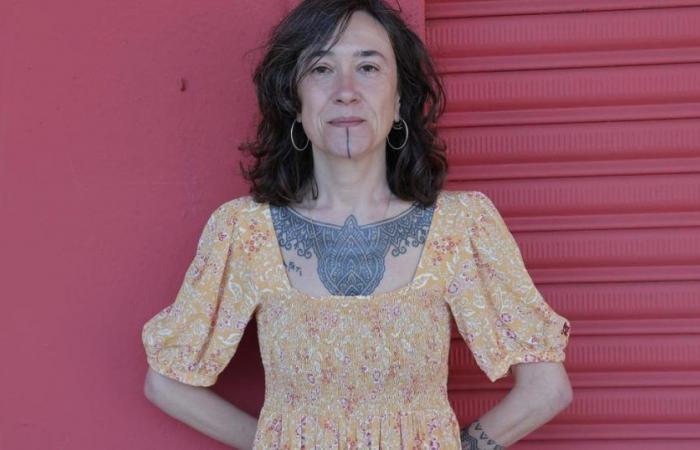Love is, and surely always will be, the great theme of the universal literature. It is, therefore, one of the most hackneyed, but we still need to talk about love affairs from its multiple aspects and, in this way, it continues to be an inexhaustible source of fictions. He has dedicated precisely to love Begoña Mendez (Palma, 1976) his new book: One hundred and twenty-four holes (H&O Editors). The title is part of a new collection from this Barcelona label in which they invite selected authors to explore a specific topic through the arguments they consider appropriate. In your case, you have needed 124 fragments or “holes” to delve deeper into love.
«I wanted to put in game this theme that was born in the origins of literature, but that still continues to challenge us. We all fall in love, we all fall out of love; we want to be loved and we want others bodies. It is not just something erotic, because there are many types of love and ways of loving. For example, Anne Carson talks about love for his father and brother, or in the movie Nostalgia Tarkovsky is about love towards humanity. “I wanted to put this whole imaginary of love into play,” the author reasons.
Although it is the first time that Méndez addresses love in such an explicit way, he warns that it was already present in his previous works. Thus, in Mud (Lengua de Trapo, 2023) “the love of the territory” appears, specifically the Mar Menor; in Auto-science fiction for the end of the species (H&O Editores, 2022) towards “bodies that live in a situation of discomfort”; in The anarchist marriage (H&O Editores, 2021) as “defense of love as a story and the need for rituals” or even in Open wounds (Wunderkammer, 2020), which is based on “the love of intimate literature.”
Likewise, for the writer, the structure of the book is equally important, in the form of fragments, which has meant something new, as well as the use of the third person, which has allowed her to “take a certain distance and perspective from what “I wanted to narrate.” To do this, Méndez has used a multitude of references, mostly literary, although he has also used filmography and songs. “For me the bibliography is a very important part of the work, it is a way of saying that we do not write alone,” she justifies. And the aforementioned Carson, but also Simone Weil and even Dante guide Méndez in this poetic essay.
«Dante is a fundamental reading. I’m interested because he is the first author who talks about love and desire not as disease, but as a passion that leads us to want to improve, as something positive. Furthermore, Dante is important because he is one of the first to become aware that literature offers a model of loving behavior. From there, I have realized that literature, but also cinema, teaches us to love, they give us behavior in this regard,” he details.
This way, One hundred and twenty-four holes It constitutes a great book of love for literature, the best possible tribute. «It was born from Carson, when he was preparing a talk about it, but I soon realized that they were two different texts; but here are things that I read twenty years ago and, suddenly, they have appeared without forcing it, of natural form. For me it is very difficult to separate my life experience from my cultural experience, both shape me as a person,” he says.
“Love is, above all, a question, a gap,” says Méndez before starting the book. «It is an idea that is very present in the work of Carson, who postulates that in a love relationship there are always three elements: the two lovers and, later, the impossibility of possessing the other completely. It is an empty space that can never be filled and, for this reason, we tell love stories: to fill that gap,” explains Méndez, who tries to find a solution with his 124 fragments. If she became tragic, he points out in the essay, she would affirm that she cannot live without literature, and that is precisely why she signs this great tribute to this art, “the best lover I have ever had in my life,” declares Méndez, who has just completed an artistic residency at the Apel·les Fenosa Museumdirected by Nekane Aramburu, who was director of Es Baluard from 2013 to 2019. «There I found a beautiful unpublished poem by Mercè Rodoreda. “I am still working on writing about my stay there,” he concludes.






